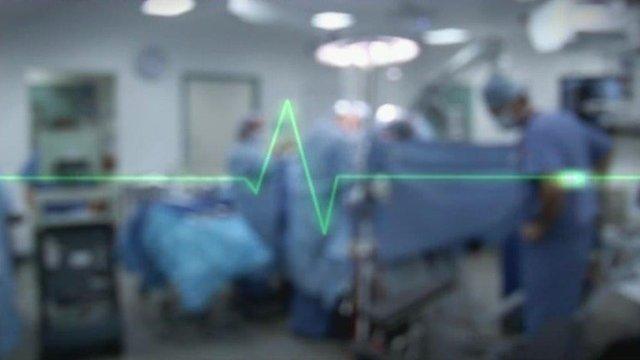Robot arms to help perform cancer operations in Wales
- Published
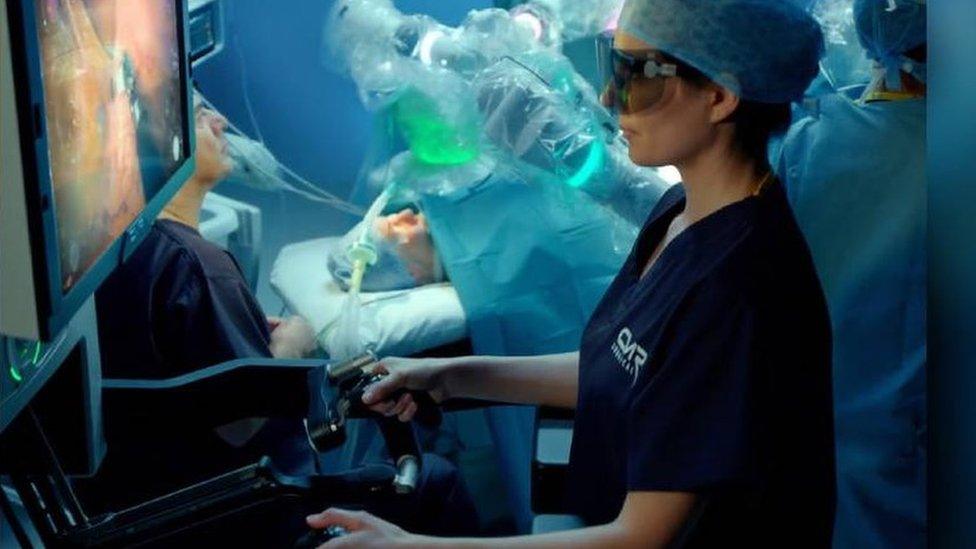
Robotic arms could soon be used to perform surgery on patients in Wales
Thousands of cancer patients across Wales could soon be operated on by robotic arms controlled by surgeons.
Previously, patients living in north Wales had to travel to England for robot-assisted surgery.
From June, the arms will be used to perform some surgeries at Ysbyty Gwynedd in Bangor.
Doctors said the technology would improve accuracy and help patients recover more quickly.
The first machine at the hospital comes as part of plans to establish an "all-Wales robotic assisted surgery network", with more of the technology expected to be rolled out across the country.
The robotic arms will be used by the NHS to perform procedures for some prostate and gynaecological cancers, and some procedures on the digestive system, kidneys and bladder.
The jointed arms with surgical instruments at the end are used to perform keyhole surgery, and are moved by a surgeon who controls them via a computer.
Cameras on the arms let the surgeons see what is happening, and they can zoom in and magnify the area being operated on.
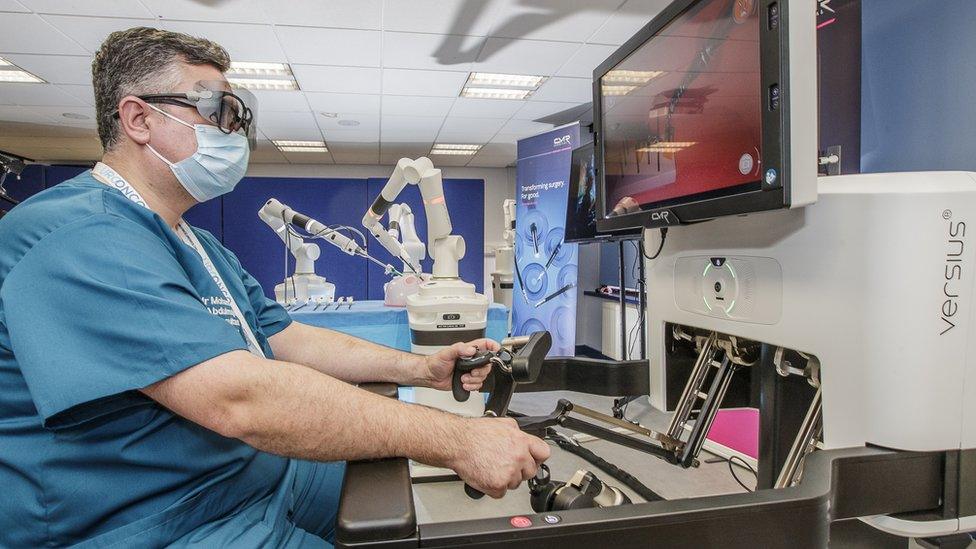
Consultant urologist Mohamed Abdulmajed at the controls of the surgical robot, which is operating in the background behind him
Consultant Urologist Mohamed Abdulmajed, who was one of the first medics to be trained using the robot at Ysbyty Gwynedd, said there were many benefits to using the technology.
"One of the first operations we'll be doing with the robotic arms is men's prostate cancer surgery," he said.
"We can be sure of a high level of accuracy, and avoid the nerves which control a man's sexual function, and reduce the risk of someone being made incontinent by the surgery.
"Overall, keyhole surgery with a robotic arm has many advantages for patients compared to open surgery.
"The wounds are smaller, there's less blood loss, and that in turn means a shorter hospital stay and an earlier recovery, allowing a person to return to work sooner."
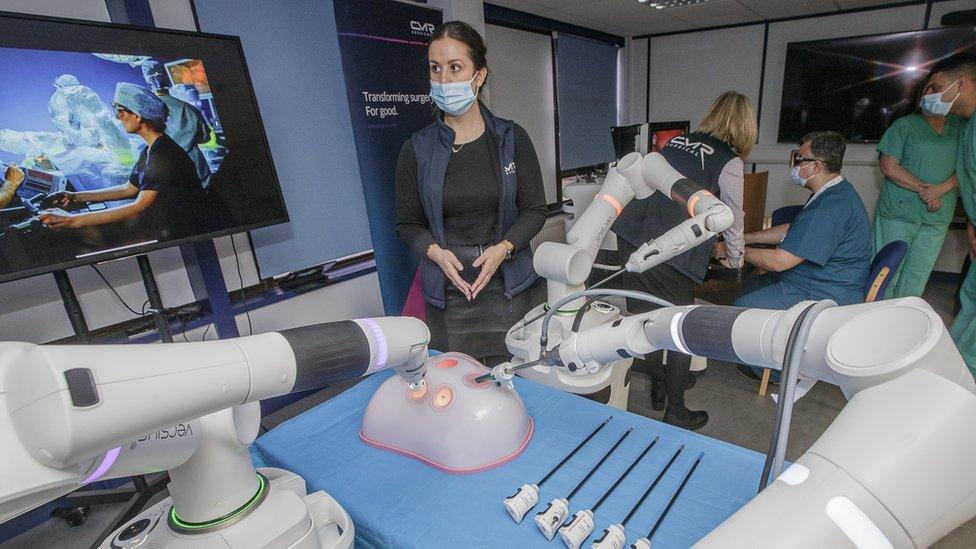
Each arm will have surgical instruments at the end
But he reassured patients that while the technology was being used, the operation was still being carried out by a surgeon, who is in control and makes the decisions.
A second robot is set to be placed at Cardiff and Vale University Health Board - adding to a similar one already at the health board - which has been used for surgery on hard to reach head and neck cancers.
The Welsh government said other health boards across Wales were expected to follow, which would provide less invasive surgery for thousands of cancer patients across the country.
NHS Wales managers said this area of technology was developing fast.
They will be working with medical technology company, CMR Surgical, which builds the robot arms, to do further research into how they can be used in the future.
Jared Torkington, who is heading up Wales' robotic surgery programme, believes the next 20 years will see more radical change.
"We can look forward to a future where healthcare is even less invasive and better able to fit the individual needs of patients," he said.
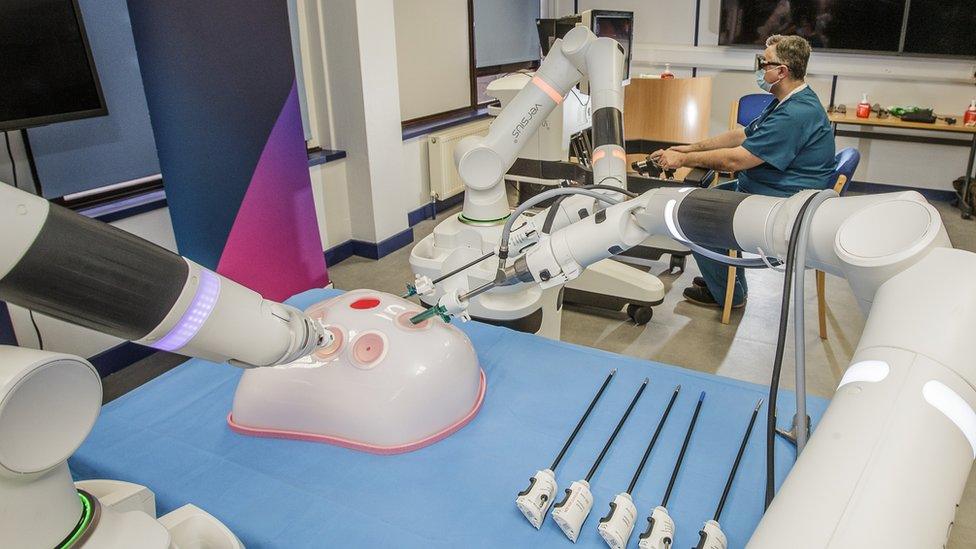
Health boards and the Welsh government are ploughing millions of pounds into new technology
NHS managers also hope having the latest technology in north Wales' hospitals will help them attract and retain staff.
The Welsh government has committed £4.2m to developing robot-assisted surgery in Wales over five years, with health boards also providing more than £13m over 10 years towards the programme.
Health Minister Eluned Morgan said: "It will put Wales at the forefront of international research for the use of robotic surgical techniques.
"This pioneering service will also encourage specialist staff to come to Wales to train and practise," she said.
"Once the programme is fully established in the Betsi Cadwaladr University Health Board area, patients in north Wales will no longer need to travel to England to receive robotic-assisted surgery."

THE ASIAN WELSH: How immigration from the Indian subcontinent transformed Welsh health, culture and the economy
FIGHT FOR YOUR RIGHTS: X-Ray returns and they've got your back

- Published12 March 2022
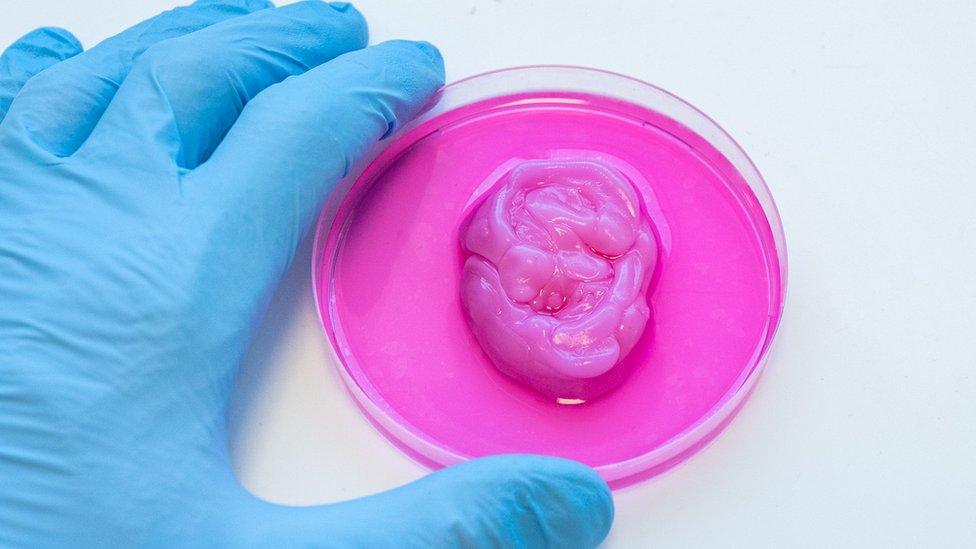
- Published14 February 2020
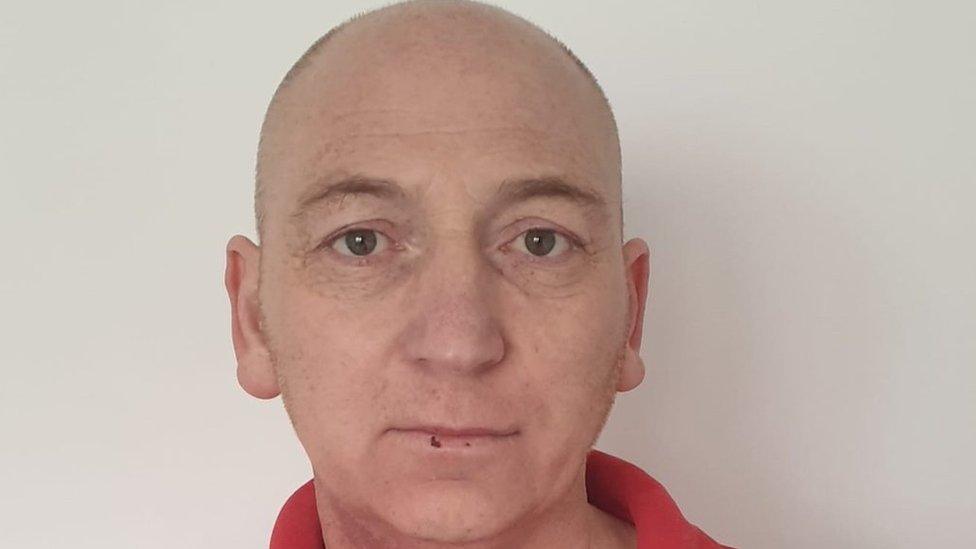
- Published26 February 2014
